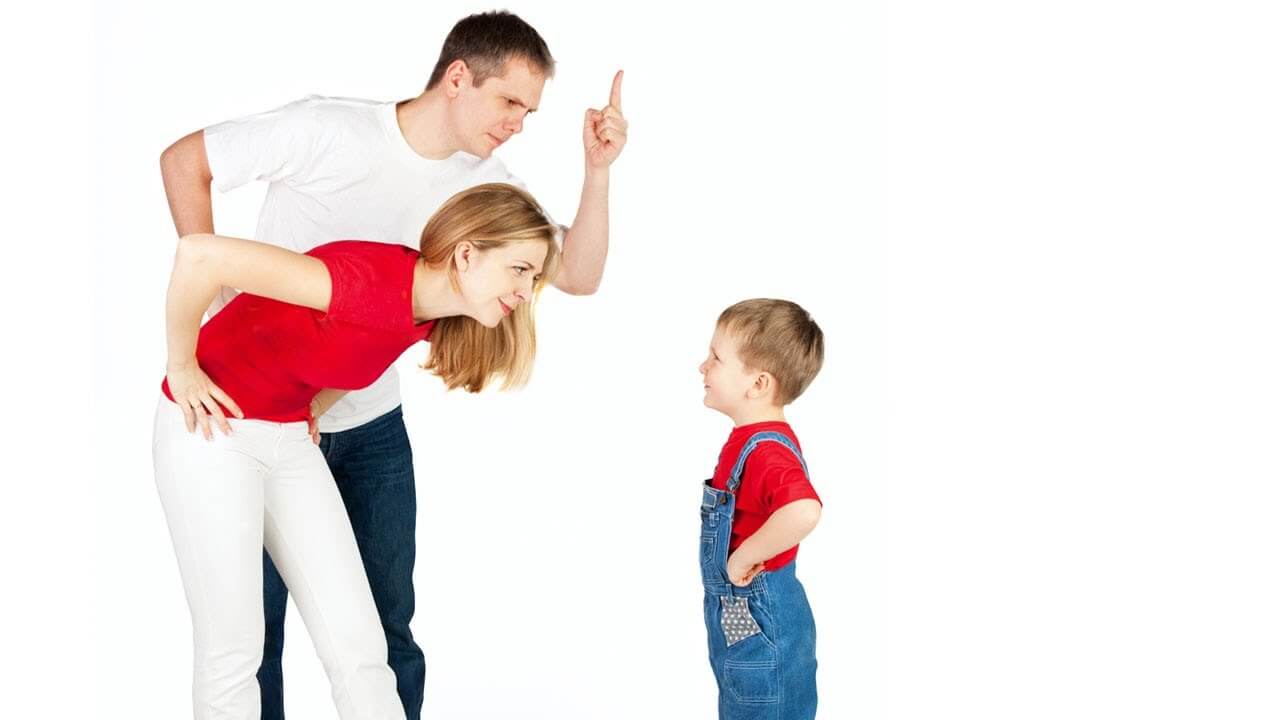Positive Ways to Discipline Children: Alternatives to Punishing

Are punishments effective at all? Many parents ask themselves that question when it’s time to discipline children. Grounding, yelling, scolding, sending them to their room… However, these types of punishments have a short-lived effect.
You need to realize that punishing your children could have negative consequences. Usually, punishments teach children to avoid getting caught, not understanding what was wrong in the first place.
Also, if you use violence to discipline them, children may then also try to solve problems with violence. Punishing your children in a harsh matter can affect their self-esteem and they’ll start holding grudges.
One of the best ways to improve children’s behavior is by having a conversation with them. Although this isn’t always enough. In this article, you’ll learn about other alternative approaches that will have positive effects.
This way, you can compare them with traditional punishments and see how effective these are. When you punish your children using better and non-violent alternatives, they’ll learn and grow healthily.

2 forms of punishment
There are different types of punishment, but they fall into two main categories:
- Positive punishment. This type of punishment applies when you give your child something they don’t want or don’t like.
- Negative punishment. This type of punishment applies when you take something away from a child, something that they like.
Positive discipline establishes loving and respectful relationships among parents and children. This is the best method for both parties involved, because it’s not about being too soft or too bossy. Rather, it’s about being firm, respecting everybody’s feelings and needs. This is the most effective way to discipline a child.
Alternative ways to discipline children
- Preach by example. You need to become their role model, define clear rules and behave according to those rules.
- Ask questions. Ask your child what happened, or what they think is going to happen now.
- Avoid power struggles. If your child refuses to own up to their bad behavior, avoid getting into a power struggle to make them change their minds. This can become a vicious cycle and tire you both out.
- Breathe. If you’re feeling stressed out, take a deep breath. Breathing deeply will help you calm down and think things through.
- Let them choose. Children need to feel heard. Give them the option to choose for themselves. Don’t give a monologue, allow your child to participate.
- Whisper. In a tense situation, whisper to them. This won’t only help them calm down, but you’ll do so too.
- Give them time. This gives your child a sense of autonomy and they’ll be more cooperative.
- Be patient. Count up to ten. This will give you time to think things through and allow you to be more objective.
- Say positive things. Saying positive things will help them receive your message more calmly. Instead of telling them not to run, tell them to go slower.
- Find a way to distract them. In case things become too tense, distract them. Ask them to take a break or ask them what they’d like to do.

How effective are punishments to discipline children?
If you punish your children, the punishment has to be proportional to what they did and you need to explain why they’re being punished. It isn’t advisable to make threats and not follow through, because the child will realize you don’t keep up your word. Don’t try to intimidate them if you’re not going to do anything about it.
Know that punishing your children isn’t a foolproof method to change their bad behavior. It’s better to just reinforce their right attitudes and give them tools to do so. Thus, they’ll do good more often and won’t repeat what they did wrong.

In conclusion, if you just punish your children and don’t tell them why or what they did wrong, they won’t learn how to act or behave. First, punishments have to be proportional to their actions and, second, children need to be educated and aware of what you think good behavior is.
Above all, put yourself in your children’s shoes. Treat them as you’d like to be treated.
Are punishments effective at all? Many parents ask themselves that question when it’s time to discipline children. Grounding, yelling, scolding, sending them to their room… However, these types of punishments have a short-lived effect.
You need to realize that punishing your children could have negative consequences. Usually, punishments teach children to avoid getting caught, not understanding what was wrong in the first place.
Also, if you use violence to discipline them, children may then also try to solve problems with violence. Punishing your children in a harsh matter can affect their self-esteem and they’ll start holding grudges.
One of the best ways to improve children’s behavior is by having a conversation with them. Although this isn’t always enough. In this article, you’ll learn about other alternative approaches that will have positive effects.
This way, you can compare them with traditional punishments and see how effective these are. When you punish your children using better and non-violent alternatives, they’ll learn and grow healthily.

2 forms of punishment
There are different types of punishment, but they fall into two main categories:
- Positive punishment. This type of punishment applies when you give your child something they don’t want or don’t like.
- Negative punishment. This type of punishment applies when you take something away from a child, something that they like.
Positive discipline establishes loving and respectful relationships among parents and children. This is the best method for both parties involved, because it’s not about being too soft or too bossy. Rather, it’s about being firm, respecting everybody’s feelings and needs. This is the most effective way to discipline a child.
Alternative ways to discipline children
- Preach by example. You need to become their role model, define clear rules and behave according to those rules.
- Ask questions. Ask your child what happened, or what they think is going to happen now.
- Avoid power struggles. If your child refuses to own up to their bad behavior, avoid getting into a power struggle to make them change their minds. This can become a vicious cycle and tire you both out.
- Breathe. If you’re feeling stressed out, take a deep breath. Breathing deeply will help you calm down and think things through.
- Let them choose. Children need to feel heard. Give them the option to choose for themselves. Don’t give a monologue, allow your child to participate.
- Whisper. In a tense situation, whisper to them. This won’t only help them calm down, but you’ll do so too.
- Give them time. This gives your child a sense of autonomy and they’ll be more cooperative.
- Be patient. Count up to ten. This will give you time to think things through and allow you to be more objective.
- Say positive things. Saying positive things will help them receive your message more calmly. Instead of telling them not to run, tell them to go slower.
- Find a way to distract them. In case things become too tense, distract them. Ask them to take a break or ask them what they’d like to do.

How effective are punishments to discipline children?
If you punish your children, the punishment has to be proportional to what they did and you need to explain why they’re being punished. It isn’t advisable to make threats and not follow through, because the child will realize you don’t keep up your word. Don’t try to intimidate them if you’re not going to do anything about it.
Know that punishing your children isn’t a foolproof method to change their bad behavior. It’s better to just reinforce their right attitudes and give them tools to do so. Thus, they’ll do good more often and won’t repeat what they did wrong.

In conclusion, if you just punish your children and don’t tell them why or what they did wrong, they won’t learn how to act or behave. First, punishments have to be proportional to their actions and, second, children need to be educated and aware of what you think good behavior is.
Above all, put yourself in your children’s shoes. Treat them as you’d like to be treated.
All cited sources were thoroughly reviewed by our team to ensure their quality, reliability, currency, and validity. The bibliography of this article was considered reliable and of academic or scientific accuracy.
- Sánchez Gutiérrez, Ginette. (2009) Teorías de niñas y niños sobre el castigo parental. Revista Electrónica “Actualidades Investigativas en Educación”; Universidad de Costa Rica; San Pedro de Montes de Oca, Costa Rica; vol. 9, núm. 2, mayo-agosto, 2009, pp. 1-29; 31 pág https://www.redalyc.org/pdf/447/44713058002.pdf
- Víquez Jiménez, Mario Alberto. (2014) Castigo físico en la niñez: un maltrato permitido. UNICEF; San José; Costa Rica; 158 págs https://www.unicef.org/CastigoFisico-final-9octubre-web.pdf
This text is provided for informational purposes only and does not replace consultation with a professional. If in doubt, consult your specialist.








